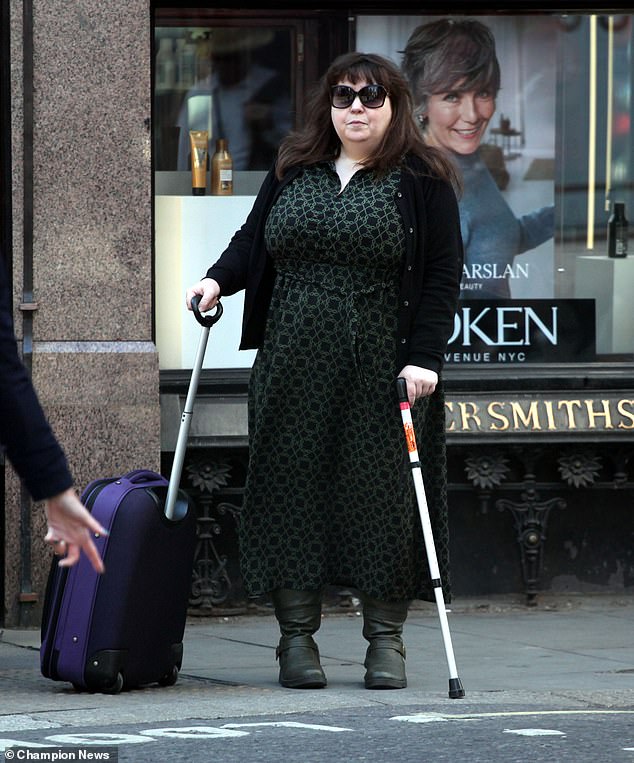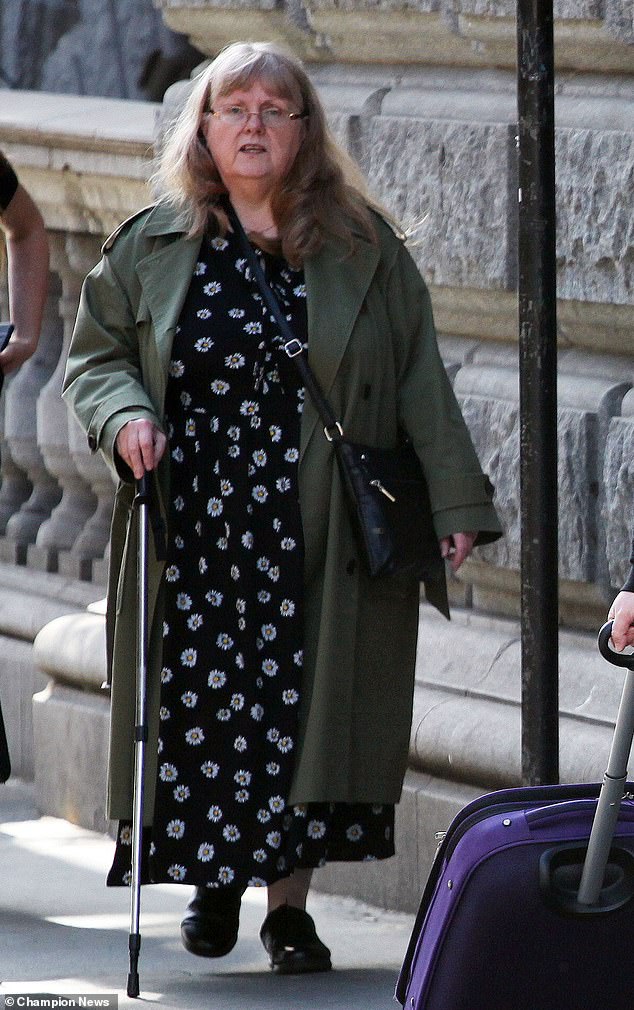A woman who took her sisters to court in a bid to keep their late mother’s £420,000 home for herself and her two ’emotional support dogs’ has lost her case.
Sharon Duggan took the legal fight against her sisters Brenda, 55 and Ann, 60, after their mother Agnes died in 2018 to block them from the inheritance.
Despite being entitled to a third of the estate, Sharon sued for a larger share under the Inheritance Act, claiming her medical conditions made it impossible for her to live in a flat and that she needed to stay in the family home for life.
The 49-year-old cited a wide range of health problems, including PTSD, chronic fatigue syndrome, fibromyalgia, and long Covid, and told the court her two rescue dogs ‘help with her mental and emotional well-being.
The judge accepted that ‘hyper-vigilant and sound sensitive’ Sharon has ‘particular issues,’ but ultimately ruled that a flat could not be ruled out as ‘suitable’ accommodation for her.
Although Ann remained neutral in the dispute, therapist Brenda fought back and has now won, after Judge Alan Johns threw out Sharon’s claim at Central London County Court.
The court heard most of the estate was tied up in the Crawley, Sussex property, where Sharon had cared for Agnes during her final years with dementia.
After Agnes died, aged 78, the three sisters ended up in court when Sharon refused to move out, citing her acute physical and emotional needs and the plight of her two rescue dogs.

Sharon Duggan took her sisters to court after their mother Agnes died in 2018 to block them from the inheritance.

The court heard most of the estate was tied up in the Crawley, Sussex property, where Sharon had cared for Agnes during her final years with dementia
She insisted that her needs outweighed her sisters’ right to get the inheritance they are due, also arguing that it would be hard to find alternative accommodation for both her and her two therapeutic dogs, which ‘help with her mental and emotional well-being’.
Sharon argued she had ‘sacrificed’ her career to become a full-time carer and claimed her mother intended to change her will in her favour.
She also said she had spent £30,000 of her own money on vet bills for her mother’s dog, a Jack Russell/Chihuahua cross, called Lady.
In her written arguments to the court, Sharon insisted that ‘psychologically she could not cope with living in a flat again’.
‘She is anxious that neighbours may cause disturbances and impact upon her ability to sleep.
‘She now has two rescue dogs, which help with her mental and emotional well-being, but which make finding a suitable alternative accommodation difficult.
‘The claimant maintains that moving from the property would affect her mental health greatly and that having to move into rented or temporary accommodation would further affect her health negatively,’ she said.
In the witness box, she insisted that downsizing to a flat would be too much for her, telling the court: ‘I have two dogs to consider and I am hyper-vigilant and sound-sensitive.

One of the sisters, Ann Duggan seen outside Central London County Court

One of the sisters, Ann Duggan seen outside Central London County Court
‘A flat would not be suitable due to the noise levels. I would be better off living in a car, I couldn’t cope with it.’
Sharon wanted the house transferred to her outright or the right to a life interest, or alternatively an order allowing her to buy her mother’s old property for a small sum to be raised with a mortgage.
But Brenda, who formerly ran a bioresonance therapy company and a business providing gluten-free altar bread to food-intolerant Catholics, defended the claim, insisting Sharon and her pets will be fine in a flat.
Ruling against Sharon, Judge Johns said: ‘It’s my judgement that there has been no failure to make reasonable financial provision for her.
‘I am not satisfied there was any promise that the property would be Sharon’s – and certainly not a promise that Sharon was confident would be carried out.’
He said Sharon had moved into her mother’s house while in an ‘excellent’ financial position, although her finances are now badly depleted.
She also lived with Agnes rent free and, although she had spent time caring for her mother while in declining health, the court’s role wasn’t simply to ‘reward meritorious conduct’.
He said: ‘Given the circumstances in which Sharon occupied the property with Agnes, there’s no moral claim strong enough to deprive her sisters of their share of this modest estate.

The 49-year-old added her needs and those of her two rescue dogs – which she told Central London County Court (pictured) ‘help with her mental and emotional well-being’
‘I don’t rule out flats as suitable accommodation,’ he added, also noting that Sharon should be able to work once the court case is behind her.
‘As to her ability to work I don’t accept that she is unable to work at all – or at least she will be after this litigation is dealt with,’ he told the court, adding that Sharon herself had accepted in court that she hopes eventually to work again.
He also rejected her claim that Brenda was estranged from their mother towards the end of her life.
‘Brenda told me that she tried to see her mother and call her, but that that wasn’t permitted by Sharon,’ he said.
‘That evidence included that her telephone calls were blocked and I accept all that evidence.’
‘This is a modest estate and Agnes had two other daughters to think of,’ he noted, adding that the money Sharon claimed to have spent on Lady’s vet bills was an overestimate.
‘Essentially, provision was made for Sharon by giving her one third of the estate.’
The decision means the three sisters are each due a third of their mother estate, although Sharon’s share could be wiped out by the court bills for the trial.












